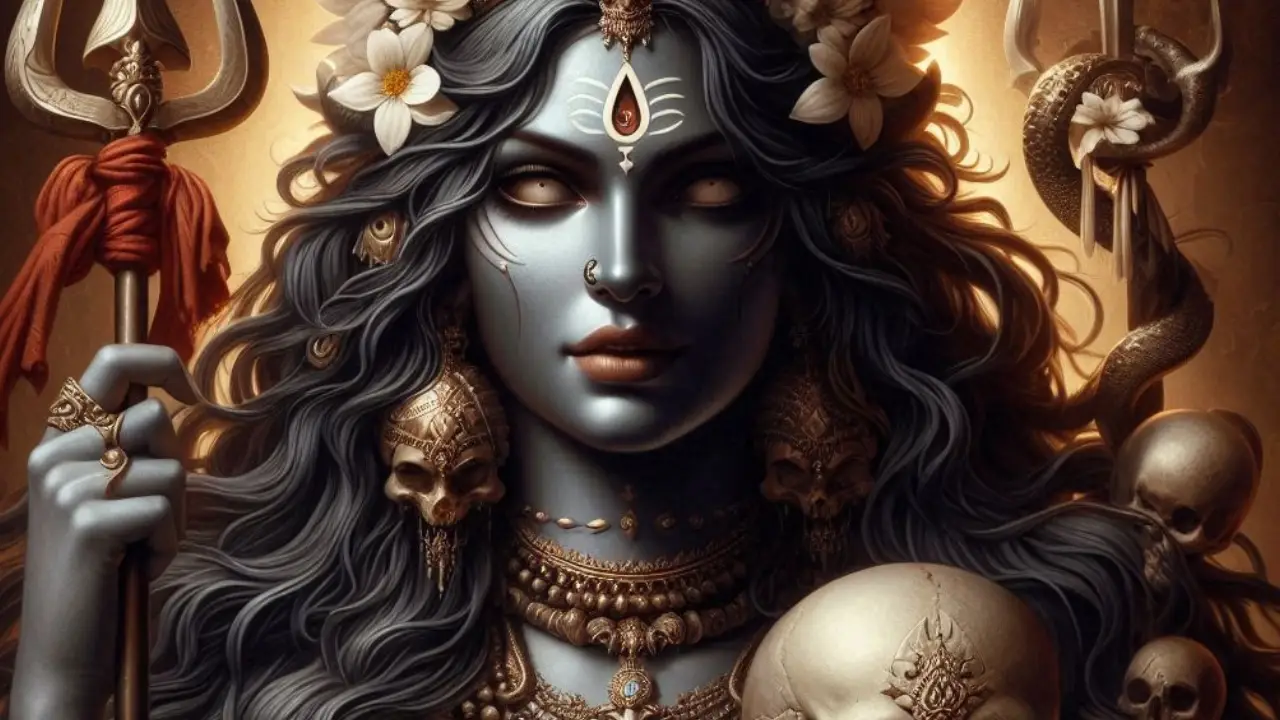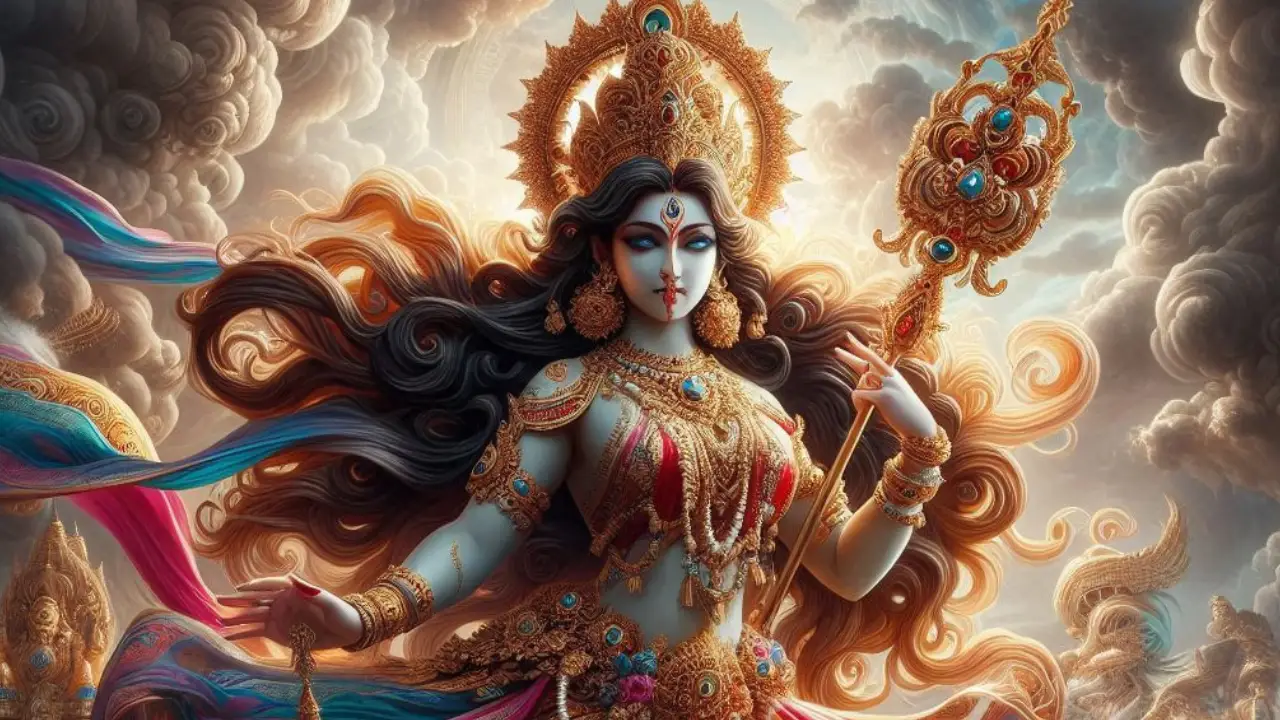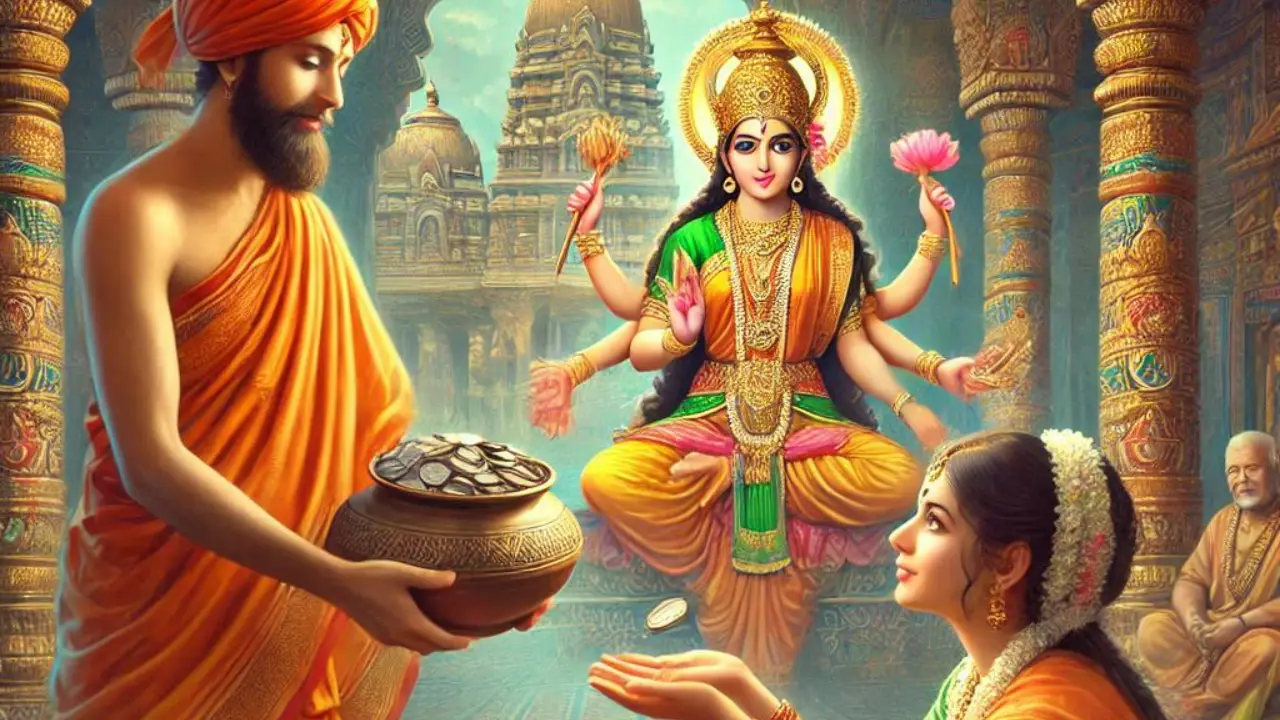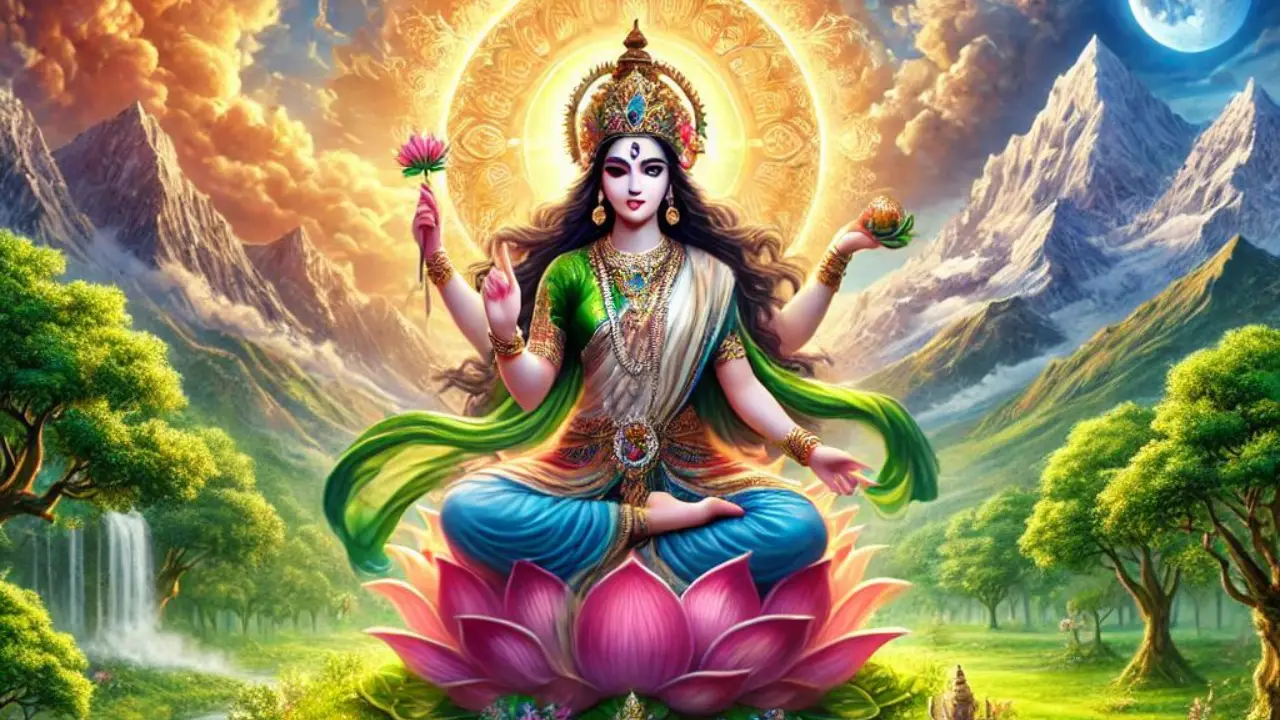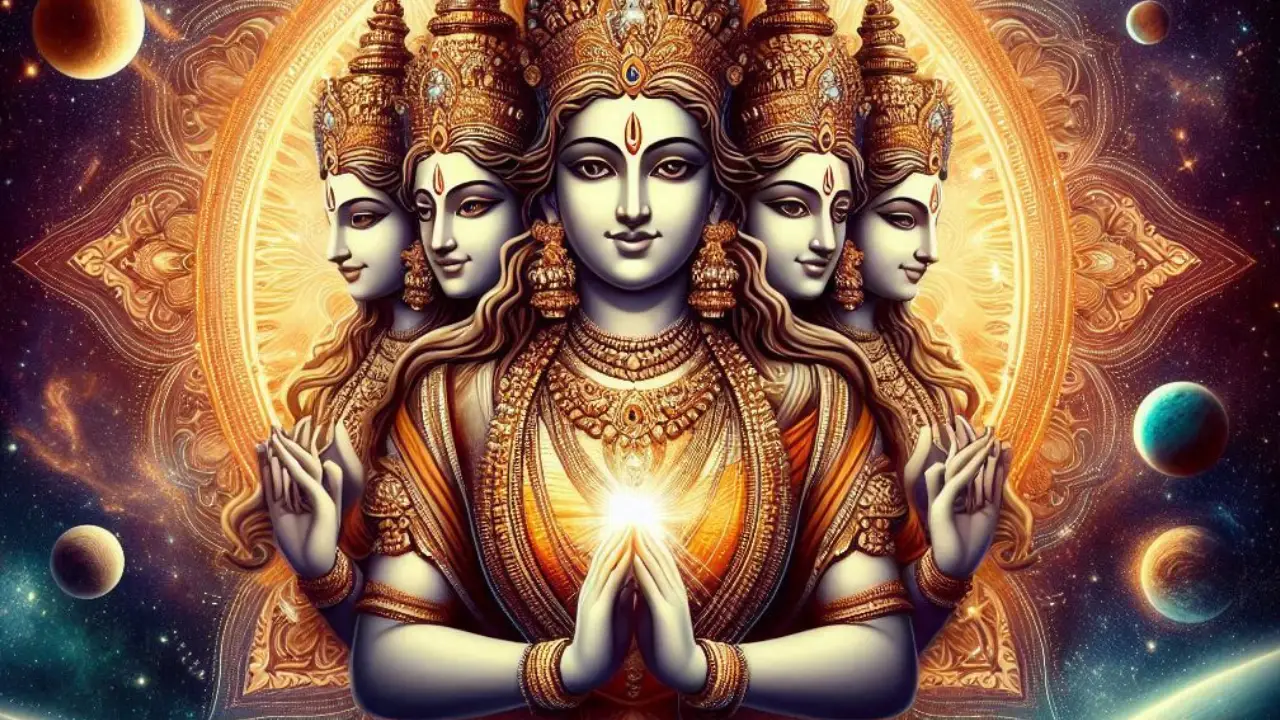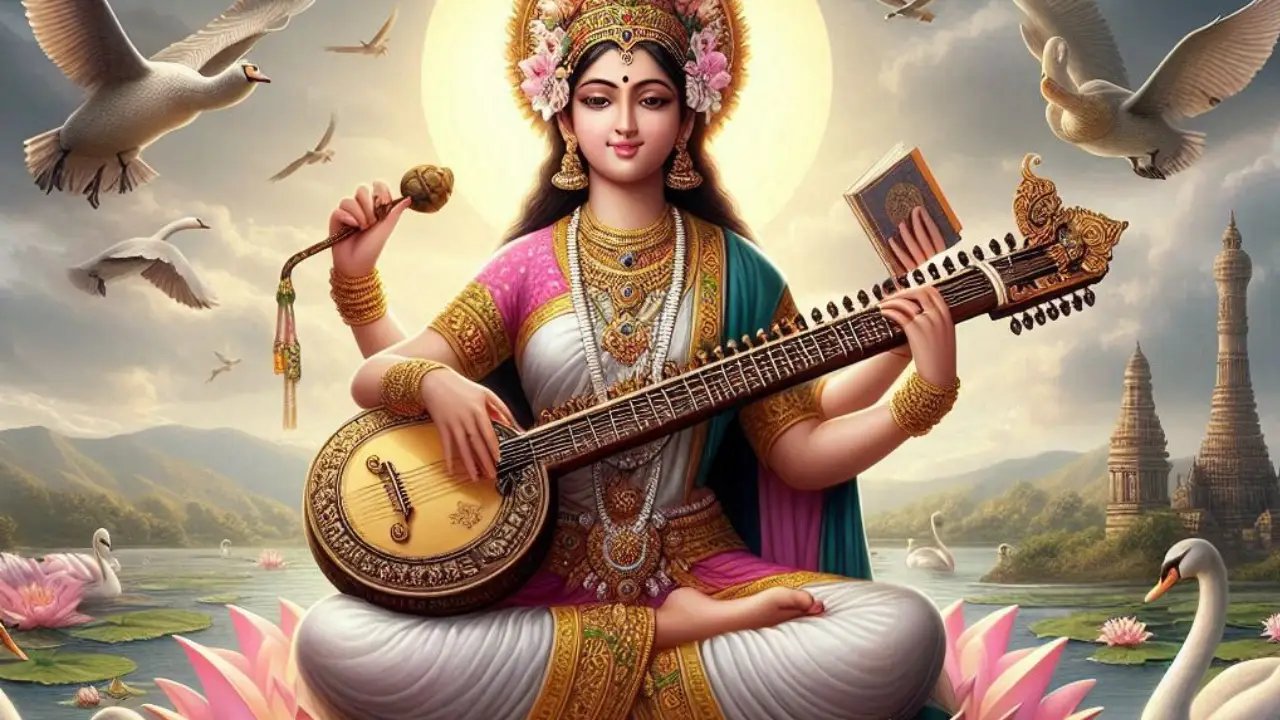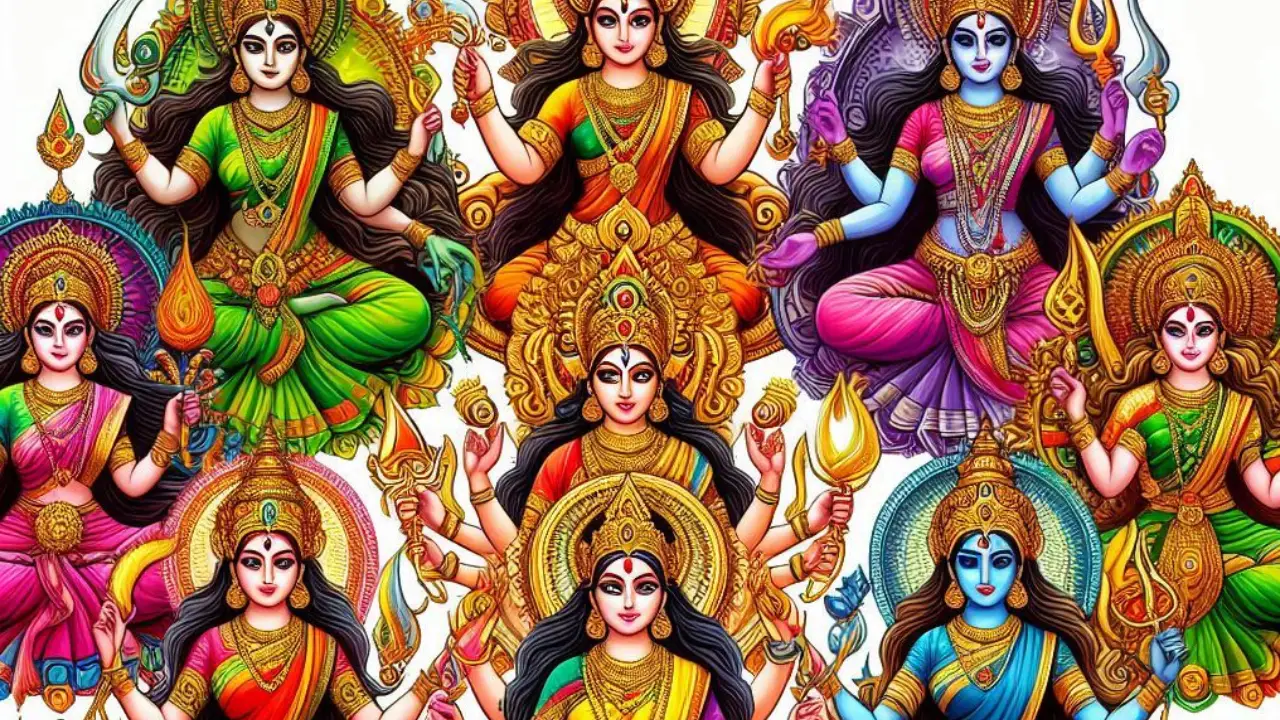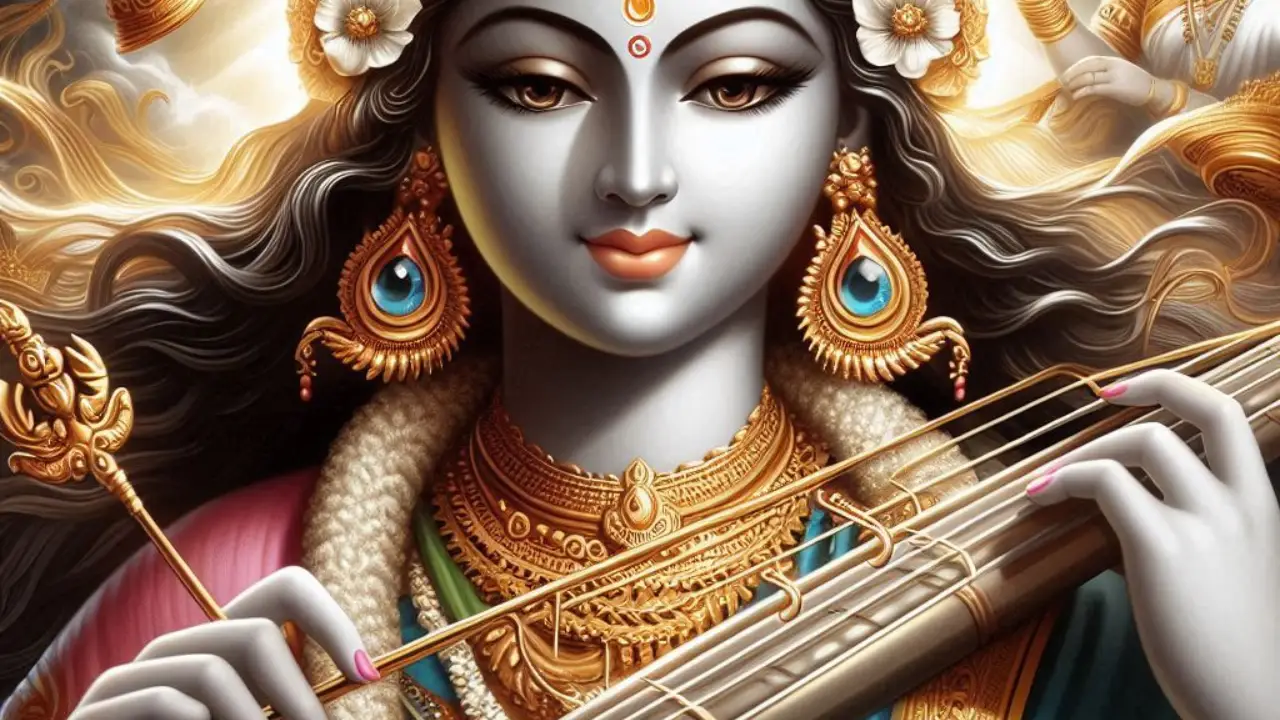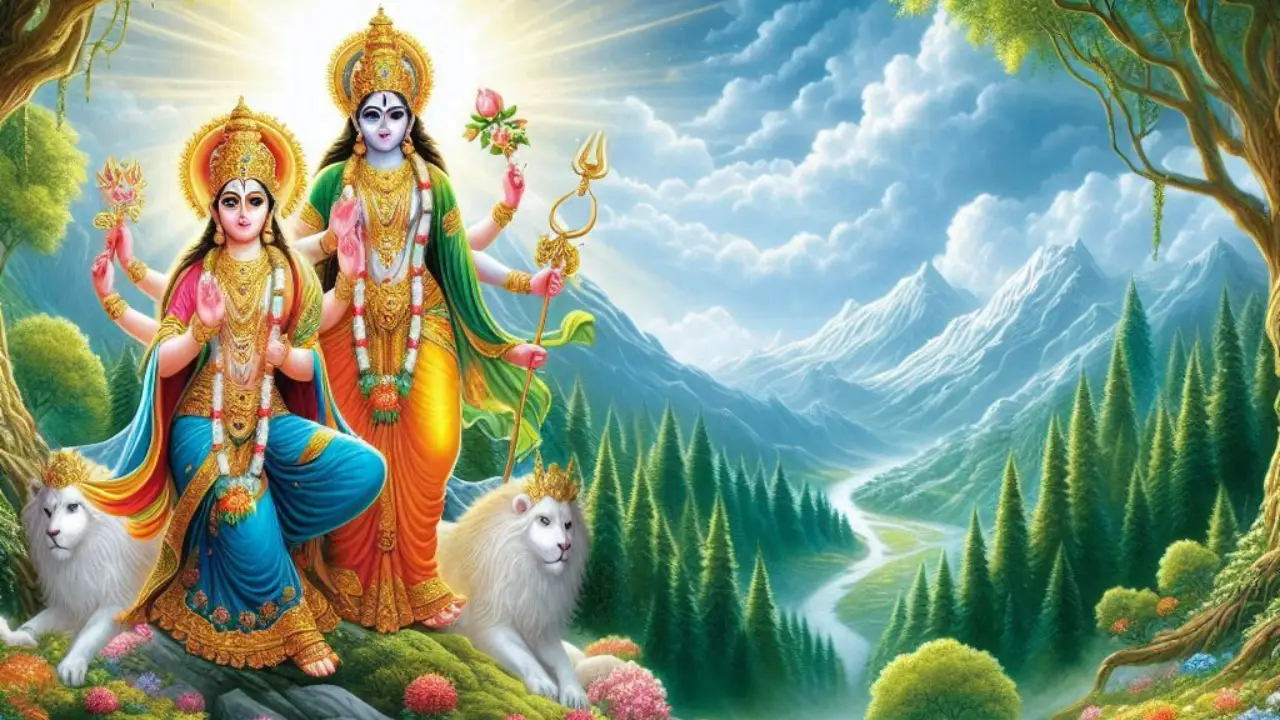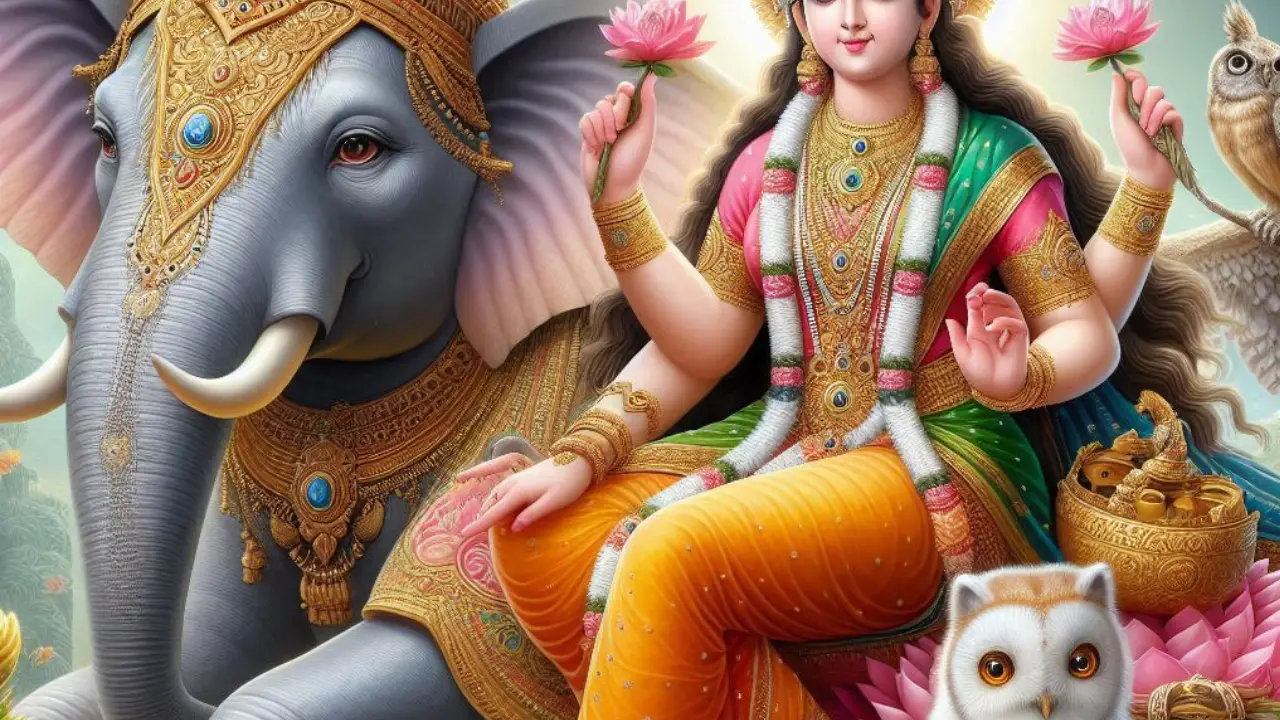The legend of Goddess Chamunda has inspired millions for centuries. Known for her fierce form and unmatched power, Chamunda embodies strength, courage, and victory over evil. Her story carries valuable lessons that continue to guide spiritual seekers today. Who is…
Category: Goddesses
The concept of Hindu goddesses originates in ancient religious and cultural traditions of Hinduism which is one of the world’s oldest and diverse religions. Hinduism embraces numerous deities, with goddesses holding an essential and revered position.
Hindu goddesses often portray strong, multifaceted beings, reflecting the diverse roles women play in society and the cosmos. They possess multiple arms, symbolizing their ability to accomplish numerous tasks simultaneously. Each goddess has unique characteristics, mythological stories, and devotees seeking her blessings for specific purposes.
One of Hinduism’s most venerated goddesses is Devi, often referred to as the Divine Mother. Devi embodies cosmic energy, known as Shakti, and manifests in various forms such as Durga, Kali, Lakshmi, Saraswati, and Parvati. Durga represents courage and protection, Kali symbolizes time and destruction, Lakshmi signifies prosperity and abundance, Saraswati embodies knowledge and wisdom, while Parvati is the gentle consort of Lord Shiva, representing love and devotion.
Millions of people deeply integrate the worship of Hindu goddesses into their daily lives. Festivals dedicated to specific goddesses are celebrated fervently across the Indian subcontinent. During Navratri, devotees venerate the nine forms of Devi, commemorating her victory over evil. Diwali, the Festival of Lights, honors the goddess Lakshmi, seeking her blessings for prosperity and wealth.
The goddesses’ symbolism often represents the duality of existence and the eternal dance between creation and destruction. Their stories teach valuable life lessons and offer spiritual guidance to individuals seeking strength, wisdom, and enlightenment.
In summary, Hindu goddesses, as a rich tapestry of divine feminine energy, permeate every aspect of Hindu culture and spirituality. They embody various virtues, inspiring and guiding devotees seeking spiritual growth and a deeper connection with the divine in their lives.
Kali Ma, a name that resonates with power, mystery, and transformation, is one of the most iconic goddesses in Hinduism. She is often misunderstood, perceived as a dark and violent force. However, Kali’s essence is far more profound and empowering….
Generosity has been a cornerstone of Indian culture for centuries. Rooted deeply in tradition, it is viewed as a divine act that opens the door to prosperity, especially when seeking the blessings of Goddess Lakshmi. In Hinduism, Lakshmi symbolizes wealth,…
Parvati, a revered goddess in Hinduism, symbolizes strength, nurturing, and balance. This deep connection between Parvati and the elements of nature reflects profound spiritual truths. This connection offers lessons on harmony and living in tune with the world. The goddess…
Goddess Gayatri holds a profound place in Hindu spirituality, representing a bridge between human consciousness and the vastness of the cosmos. As one of the most revered deities, she is known as the embodiment of knowledge, light, and wisdom. Her…
Goddess Saraswati, revered as the embodiment of wisdom, knowledge, and creativity, has held a significant place in Hinduism for centuries. As the goddess of learning, she inspires scholars, artists, and thinkers with her teachings and qualities. But her timeless lessons…
Navratri, one of the most significant festivals in Hinduism, honors the nine divine forms of Shakti, or the feminine energy. Across India and the world, devotees celebrate Navratri with immense devotion, offering prayers, fasting, and engaging in rituals to seek…
Imagine a serene figure, draped in pure white, playing the veena with an ethereal grace that mesmerizes anyone who beholds her. This is Goddess Saraswati, the embodiment of wisdom, art, and music in Hinduism. Revered as the divine source of…
The rich tapestry of Hindu mythology presents a plethora of gods and goddesses, each with their unique attributes, stories, and significance. Among these divine figures, Goddess Shakti and Durga hold a special place, often depicted as different manifestations of the…
Lakshmi, the Hindu goddess of wealth, fortune, and prosperity, often appears with two animal companions: the elephant and the owl. These animals are not merely decorative elements; they carry profound symbolic meanings that deepen our understanding of Lakshmi’s role in…

